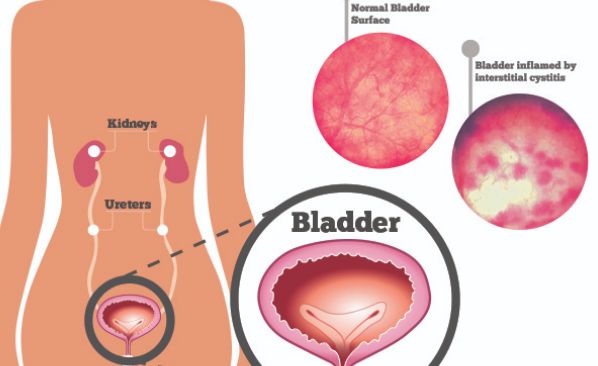10 Causes of Burning Or Discomfort During Urination

Whether it is because of an underlying health condition, or an easy pain, burning or discomfort throughout urination prevails and can be an indication of a medical problem. In fact, many people experience pain during urination a minimum of once. According to ob-gyn Lakeisha Richardson, 30% of her patients visit her workplace because it injures to urinate.
STIs
If you’re experiencing burning or discomfort throughout urination, you ought to get checked for an STI. This is a great way to dismiss other conditions, such as prostate illness, bladder cancer, or a bacterial infection. You can get a STD test at Your Sexual Health, and it will assist you determine what’s triggering the discomfort.
Although lots of STDs do not have signs, a couple of are easily detected. These symptoms can consist of burning or pain while urinating, skin changes (such as blisters), or discharge. They differ from regular UTI symptoms, so it is very important to see your physician if you think you might have an STI.
Burning or pain throughout urination can be a symptom of sexually sent infection (STI). Some of the most common cause of burning and discomfort throughout urination include chlamydia, gonorrhoea, and herpes. Some STIs are more serious and need medical attention. Fortunately, the majority of symptoms are treatable. Avoidance is constantly better than cure, so make sure to get tested regularly.
You should likewise think about that duplicated urinary tract infections are not a sign of an STI. There are other causes of discomfort or burning throughout urination, including bladder or urethral infections. A physician will be able to rule out other conditions prior to making a medical diagnosis. The goal of a medical examination is to determine the source of the discomfort and identify the best treatment.
Herpes
Burning or pain during urination is one of the most typical signs of herpes. This infection can result in blisters, which may infect other areas of the body. In addition to discomfort, the contaminated locations might likewise be red, swollen, and even exude fluid. Although there is currently no cure for herpes, the condition can be managed and treated.
The primary treatment for genital herpes is antiviral medication. This is taken daily to minimize the symptoms and reduce the period of a break out. In addition, patients might likewise want to visit a sexual health clinic to have the infection diagnosed. In this manner, they can get a proper medical diagnosis and begin treatment.
Herpes is infectious and is easily handed down to others. You can pass it to your partner through sexual contact even prior to you discover any signs. It is necessary to get tested for the condition to make sure that you do not have an underlying condition.
When herpes is left unattended, an outbreak can last several weeks or perhaps months. The very first symptoms may appear only two to four weeks after you get infected. In some cases, nevertheless, the infection might go undiscovered for several years.
Interstitial cystitis

If you experience burning or discomfort while urinating, you might have interstitial cystitis. This uncomfortable condition can be challenging to treat, however there are treatments that can ease the signs. These include diet changes, medications, and even surgery. Medications are typically the very first line of treatment, however you might require to try numerous prior to finding one that works for you. You may also want to try bladder training, which involves training your bladder to hold urine for longer periods of time.
Symptoms of interstitial cystitis vary, from moderate pain to extreme discomfort. Symptoms generally last for hours, days, or even weeks. You might experience these signs more during the menstruation. Occasionally, these symptoms will disappear during a period of routine remission. The underlying cause may be a defect in the bladder or changes in the bladder nerves.
Diagnosing IC includes a series of tests. Your physician may perform a pelvic exam or perform a cystoscopy, a treatment that lets your medical professional see inside your bladder. He or she might even take a sample of the bladder lining to look for growths. The treatments for interstitial cystitis depend upon the underlying cause.
Noninfectious cystitis
If you have burning or discomfort during urination, it is important to see a doctor right now to rule out cystitis. You ought to avoid hot foods, citrus juices, and caffeine, as they can irritate the bladder and lead to recurring infections. You need to also avoid changing catheters too frequently due to the fact that this can result in further damage. Your primary care company can assist you decide if you require further testing. If you have frequent episodes of cystitis, you may need to check out a urologist.
Noninfectious cystitis is triggered by germs that enter the urethra and bladder and attach to the bladder lining, triggering inflammation and inflammation. This is what causes burning and pain during urination. This infection is more typical in ladies than men, however it can occur in males as well. It can be caused by particular medications and hygiene items, in addition to long-lasting catheter use.
Intense cystitis is a kind of infection in which blood is discovered in the urine. This blood can be noticeable under a microscope. In extreme cases, the bleeding might even obstruct the flow of urine. It is very important to see a physician if you discover blood in your urine, as this may show a bladder cancer infection.
Pelvic inflammatory disease
Pelvic inflammatory illness (PID) is a painful condition caused by an infection in the pelvic location. Normally, it can be treated with oral antibiotics. Nevertheless, some extreme cases might require surgical treatment. Symptoms and complications of PID might consist of pelvic abscess and scarring of the reproductive system.
Pelvic inflammatory disease is brought on by infection of the reproductive organs, generally a sexually transmitted infection. It’s painful and can impact the capability to conceive a child. Each year, about 770,000 women in the U.S. experience this agonizing condition. This infection can be triggered by sexually transmitted infections, certain procedures, or unattended bacterial vaginosis or trichomoniasis. It can likewise establish slowly in time.
Pelvic inflammatory illness is often treated with antibiotics, which battle a variety of bacteria that cause the signs. Signs of PID generally enhance within a couple of days of beginning antibiotic treatment, but it’s important to finish the course. Skipping a dose can result in the infection recurring.
Signs of pelvic inflammatory illness (PID) can be tough to recognize. The most common symptom is painful urination. If you’re unsure of whether you’re struggling with a bladder infection, you should seek advice from a gynecologist for more evaluation. In extreme cases, you might require to take stronger prescription antibiotics.
Menopause
One of the most common signs of menopause is burning or discomfort throughout urination. This experience is probably set off by a drop in the levels of estrogen and progesterone in the body. Many women experience burning or discomfort during urination for two or less years, and a smaller sized percentage experiences pain or discomfort for more than 2 years. Ladies must seek medical attention if they suspect they are experiencing this condition.
The main cause of menopause-induced urinary changes is urogenital atrophy, or deterioration of the vaginal area and urinary system. These changes occur due to a decrease in estrogen levels and the decline in vaginal muscle control. In addition, advanced age also has devastating results on the pelvic organs, making them less effective in controlling the urinary system. Some treatments include dietary changes, strengthening exercises, or surgery.
In rare cases, the discomfort or burning might be the result of an infection. In these circumstances, antibiotics might be needed to alleviate the pain. Nevertheless, many women don’t look for treatment for this condition, and so it is important to get medical guidance as soon as possible.
Swelling of the urinary tract
If you are experiencing discomfort or burning while urinating, you may have an infection in your urinary system. This infection can occur in any part of the urinary tract, consisting of the bladder, urethra, and kidneys. It can likewise be brought on by certain sexually transmitted diseases. If you experience burning throughout urination and are likewise experiencing bleeding, you must look for medical attention for this condition.
Treatment for urinary tract inflammation usually starts with a thorough assessment of the client’s medical history and determining the cause of the pain. If the pain is because of a bacterial infection, prescription antibiotics may be recommended. Nevertheless, prescription antibiotics do not deal with every case of infection and might take a few months to work. If the infection has actually spread to the kidneys, treatment may involve intravenous prescription antibiotics.
Females who suffer from burning or discomfort while urinating need to look for medical treatment as soon as possible. Treatment might include prescription antibiotics and pain medication. Surgical treatment is often required if the pain is triggered by a bladder condition.










